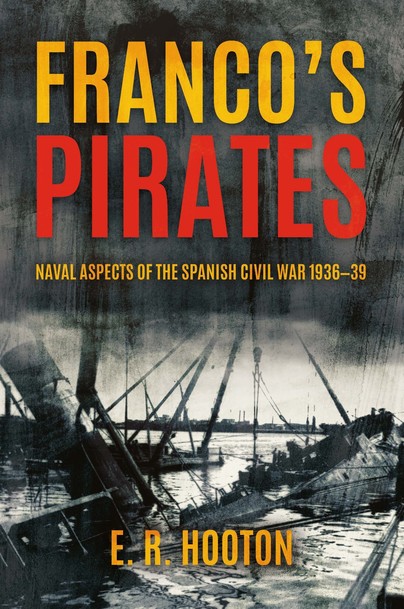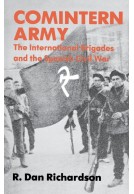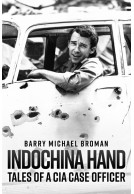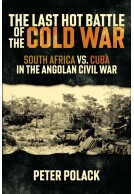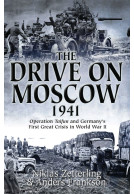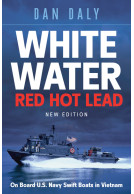Franco's Pirates (Hardback)
Naval Aspects of the Spanish Civil War 1936–1939
Pages: 256
Illustrations: 40 images plus 5–6 maps
ISBN: 9781636242750
Published: 15th March 2024
(click here for international delivery rates)
Need a currency converter? Check XE.com for live rates
The Spanish Civil War was won and lost upon the high seas. It was won because the Nationalists had an uninterrupted flow of men and materials while Republican sea lanes were attacked by Fascist warships, submarines, and aircraft – the pirates of the title. These attacks also involved dozens of foreign merchantmen and warships, including American, as well as hundreds of men, women, and boys. The worst affected was the British merchant marine, which dominated Spanish trade – some owners used rust buckets to maximise profits in a trade, which resulted in the loss of 66 British lives.
The naval element of the Spanish Civil War began with a rebellion followed by a mutiny and a massacre. Both the German and Italian navies became involved in the naval war, attacking Spanish ships and then British warships and merchantmen. A blockade in the north led to confrontations between the Royal Navy and Nationalist Navy, the mining of a British liner and tales of daring among determined British master mariners. Later in the war there were attacks by Italian surface warships, submarines, and aircraft against foreign shipping in the Mediterranean and Aegean leading to the British and French threatening pirate submarines.
This is a story of exploitation, heroism, chauvinism, piracy, international inaction, and espionage which has never been told. It includes details of such things as the first aerial campaign against shipping and the first operational use of sonar against a submarine.
This is a meticulously researched exploration of 'what it says on the cover'.
Army Rumour Service
The Spanish Civil War was perhaps the final nail in the coffin of the League of Nations, which proved to be toothless in halting the conflict. While the fighting on land was chaotic and often exceptionally bloody, waged on both sides by under-equipped and under-trained volunteers, the air and naval elements of the war offered opportunities for the future combatants in WW2 to refine weapons and tactics and hone skills which would, for good or ill, affect their later performance.
The air war was quite limited in scope, largely deployed by the German and Italian 'volunteer' units supporting Franco, although the Soviets were also active on the Republican side. Because of the ineffectiveness of anti-air defences , and the fact that many neutral ships trading with both sides and only intermittently protected by warships provided by the naval powers were sunk or damaged, the mantra that 'the bomber will always get through' adversely affected later political and military planning.
The first foreign-flagged ship lost to enemy action was the Norwegian Gulnes, bombed by Russian SB aircraft, which was built in 1888. It is surprising to read how many British ships were hit, and masters and crew killed. This was a result of the domination of world trade by the Red Ensign, and the immediate effect of the many small shipowners of elderly tramp steamers and colliers who, particularly after the 1929 crash were prepared to take high risks to secure income and stay in business. Many in the trade were happy to carry goods, mostly not war materiel, to and from both Spanish belligerents because they were more profitable. For the mostly middle-aged and elderly skippers who shared in the profits of each voyage the risks were worthwhile.A number of neutral observers from several nations, who were carried by trading vessels to confirm they were free of war materiel, were also killed.
The Italian submarine service working for Franco proved to be fairly inept, and although the Italian navy had a modern surface fleet their submarine service did not improve much after the start of WW2. The Royal Navy was at a very low point, having been starved of money during the inter-war years. Active service in protection of trade by warships from destroyers to the capital ships Hood, Barham, Prince of Wales and Revenge proved useful practice in submarine hunting, air defence and other skills. The French navy too were active in their own Mediterranean backyard. The Germans deployed warships including Graf Spee, Scheer and Deutschland.
The Soviet Union, sending cargo including significant war materiel including fuel from both Baltic and Black Sea ports, was a major contributor to the Republican war effort.
This book amasses some statistics which surprised me; the Italian air arm dropped 184,000 tons of bombs between August 1937 and January 1938.
The Spanish combatants lost 148 ships totalling about 310000 grt. Foreign ships trading with both sides or just passing the war zone lost 95 vessels totalling about 250000 grt, including 28 sailing under the Red Ensign. The author notes that the numbers don't take account of those steamers unlucky enough to be sunk twice(after being refloated and repaired) or whose losses were attributed to accident.
Ultimately the strength of Franco's ground assaults, the work of the Italian and German air forces and the small size and steady attrition of the Republican naval arm resulted in a dramatic end to the conflict on 1st April 1939. Thousands of Republicans escaped Spain by ship to North Africa or France, a number being carried or escorted by warships of the Royal Navy.
The story is told over 185 pages, every action is described and much in terms of consequences , cargoes carried, key personalities and impact on the war is detailed.
There is an Appendix listing all casualties over 100 tons grt, as well as 30 pages of footnotes, 10 pages of bibliography and 22 pages of index which includes all the vessels mentioned in the text. There are 10 fairly broad brush maps and 16 pages of photos.
This is a nicely-produced and scholarly work which presents a chronological overview of a war which involved a number of personalities who played a significant part in WW2. It's fairly hard work to read but it must just about rate 4 stars.
Following on from his earlier book covering the land war during the Spanish Civil War, the author turns his attention here to the lesser known Naval battles.
History Book Chat
Following decades of economic difficulties, it is fair to say that the state of the Spanish Navy was not one of being prepared for war, or a potential uprising. One fact the author's research revealed is that many of Spain's submarines were armed with only one torpedo.
When the Nationalist uprising began & Franco announced his manifesto, both naval bases & their ships instantly became battlefields themselves. Those supporting the current government, the Republican loyalists, would fight their fellow crew members & officers who were supporting Franco's Nationalist rebels. Executions by both sides would soon follow.
We learn how the support of Germany & Italy aided Franco's cause, whilst the Soviets would shortly follow in providing aid & support to the Republicans.
As hostilities grew, so did its effects to neighbouring islands & countries. Even today's popular holiday destinations of Ibiza & Majorca were caught up in the fighting.
Neutral shipping, even those that weren't trading with either side, were often attacked, stopped & forced into port where often their cargo & even their fuel would be 'liberated.'
Hence the book's 'Pirates' title.
Mussolini would be mentioned as 'the Pirate King' for despite not being at war with the French or British at this time, his naval fleet were behind much of the worst of the above incidents.
As both sides attempted blockades to stop supplies benefiting the other, it had an effect on other countries trading. This also caused political differences in Whitehall, where several members of the Cabinet had sympathies for opposing sides.
One final interesting fact worth sharing is that there was an additional 7000 foreigners in Barcelona caught up when the civil war broke out. Many of these were athletes who had travelled to take part in the 'People's Olympiad'. This was a protest to the event held in Nazi Germany. Many did choose to stay & fight on the side of the Republicans.
From the opening pages the author's knowledge of the subject is impressive. The book provides a comprehensive account of what took place from 1936-39. Much for the first time in an English translation.
As an avid reader of the second world war it's important to learn about what happened in Spain, as elsewhere in Europe during the 1930's.
'Franco's Pirates' certainly contributes greatly to the military history of this fascinating period & I have certainly learnt a great deal from reading this book.
The Spanish Civil War is fascinating in its own right- but also is instructive now that we have another Land War in Europe. ER Hooton, an author on conflict in the 20th Century takes on the Naval campaigns that did have effect on the land war that was central to the struggle. The Fascist Nationalists and the Socialist-then Communist Republicans both tried to conduct naval warfare -with the Nationalists being far more successful. The Nazi Germans and Blackshirt Italians also sent both weapons for the Nationalists- as well as naval forces to help. The French and the British tried to play the Naval Power adults in the room- safeguarding neutral shipping- but were not very successful. Overall, it made sailing anywhere near Spain, or Spain's Atlantic islands a dangerous exercise in the late 1930s.
Goodreads
Spain's two coastlines (on either side of Portugal) are quite long- and any traffic coming by sea from Northern Europe to the Mediterranean has to pass lots of it, so this had a big effect on European trade. There were blockade runners of all kinds- some legit trade with both combatants, submarines, and lots of gunboats stopping ships on all sort of pretexts. The Intelligence agencies - then in their post WWI infancies- were all trying gamely to figure out what was going on- but Hooten shows how confused the situation was. Reading about this- informed by the present Houthi Naval confrontation in the Red Sea- one can see parallels and comparisons. I learned a lot and feel like any reader would too, military history buff or general audience member.
There are a lot of adult themes, but they are political and not graphic injury passages, so a Junior Reader about 13/14 years can get value from this book. It's a treasure chest for the Gamer/Modeler/Military Enthusiast- a whole new part of a whole new struggle most of us have not studied much. The gamer has dozens of scenario/campaign ideas- although some other resources would probably be called for. The Modeler has a tonne of Build/Diorama ideas - the Air war element to the Naval SCW being rich with niche aircraft from the 1930s. The Military Enthusiast gets a long look at a whole Naval confrontation from the 20th Century they might not have thought of before. It's a compelling story of a crisis that has echoes today. We would do well to heed these warnings...







